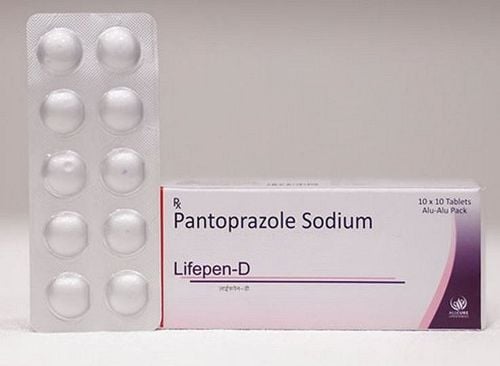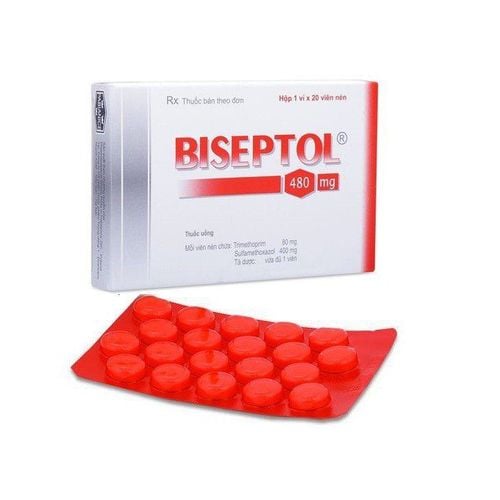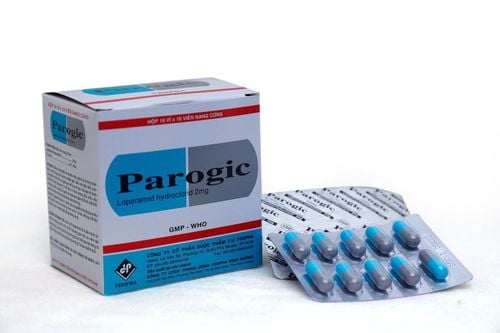This is an automatically translated article.
This article is expertly consulted by Master, Doctor Ngo Thi Oanh - Pediatrician - Pediatrics - Neonatology - Vinmec Ha Long International General Hospital.Young children are very susceptible to intestinal diseases because their digestive systems are still immature and easily attacked by bacteria and viruses. Mild can be vomiting, diarrhea, digestive disorders... More severe is cholera, intestinal obstruction, appendicitis....
1. Common intestinal diseases in young children
1.1. Diarrhea Diarrhea is one of the most common inflammatory bowel diseases in young children. The cause is caused by bacteria and viruses that attack the intestinal tract, causing children to have acute diarrhea and prolonged diarrhea.A child is considered to have diarrhea when:
Passing loose stools more than 3 times/day Abdominal pain Nausea or vomiting Bloating, abdominal distension Showing signs of dehydration Diarrhea is a common disease but if the child is dehydrated due to diarrhea Diarrhea without prompt rehydration of fluids and electrolytes can lead to dangerous consequences.
Nutrition when children have diarrhea is also very important. It is necessary for the child to drink a lot of water, if the child is still breastfeeding, the amount of feeding and feeding should be increased. Children should eat and drink from a little bit, divided into several times a day. Antidiarrheal medications should not be used. If the child has severe symptoms, unusual symptoms, the child should be taken to the hospital immediately.
Trắc nghiệm: Nhận biết sớm dấu hiệu chậm phát triển thể chất và trí tuệ ở trẻ
Nếu 6 tuổi không biết đếm số, 7 tuổi vẫn chưa phân biệt được giữa thực tế và tưởng tượng thì có thể bé chậm phát triển thể chất và trí tuệ hơn so với bạn bè cùng lứa. Bạn đã nhận biết được các dấu hiệu bất thường sớm này chưa? Cùng làm nhanh bài trắc nghiệm sau để trang bị thêm kiến thức cho mình nhé!
The following content is prepared under supervision of Thạc sĩ, Bác sĩ y khoa, Ma Văn Thấm , Nhi , Phòng khám Đa khoa Quốc tế Vinmec Dương Đông(Phú Quốc)
1.2. Dysentery Dysentery is a disease caused by amoebic parasites and shigella bacilli. Children with dysentery show:
Passing stools with mucus and blood High fever Abdominal pain Always feeling the need to have a bowel movement If the condition is severe and prolonged, the child may be exhausted, struggling, fainting, coma, and death. Dysentery is usually long-lasting. If the amoeba invades the liver, it can cause a liver abscess. If a child has dysentery caused by shigella bacillus and complications, it can die within 24 hours.
1.3. Intestinal obstruction An intestinal obstruction is the inability to go to the toilet. Neonatal intestinal obstruction is usually due to intestinal volvulus, congenital megacolon, intussusception, or inguinal hernia causing the bowel to become strangled. Manifestations of children with intestinal obstruction are continuous vomiting, sometimes vomiting bile. When children have intestinal obstruction, it is necessary to take the child to the hospital as soon as possible.

Manifestations of cholera include:
Diarrhea, massive, uncontrollable cloudy, watery stools Abdominal pain Continuous vomiting Continual vomiting and watery stools, causing the patient to quickly become dehydrated. , exhaustion and rapid death.
The cause of cholera is cholera bacteria. This bacteria often hides in dirty places, unhygienic, rancid foods, undercooked food, food that flies in. When young children eat food containing cholera bacteria, they will become infected.
To prevent cholera, it is necessary to keep clean and hygienic when preparing food for children. Let children eat cooked, drink boiling. Do not eat foods of unknown origin. Teach children the habit of washing their hands after using the toilet and before eating.
1.5. Typhoid symptoms include:
Abdominal bloating, slow digestion Abdominal pain Possible diarrhea or constipation The cause of typhoid is salmonella bacteria carrying many toxins leading to dangerous complications such as: Intestinal bleeding, intestinal perforation, the child may develop encephalitis and death.
1.6. Constipation Young children are easily constipated. Manifestations of constipation include:
Passing stools less often than usual Passing solid stools Stomach pain writhing every time you have a bowel movement Sad to have a bowel movement but do not pass stools The cause of constipation is mainly due to poor diet reasonable: lack of fiber and drink less water. In addition, the disease can form due to the habit of holding a bowel movement or having colon diseases, dysfunctional colon contractions or diseases of the spine.
When children are constipated, they should drink a lot of water, eat a lot of fiber such as vegetables and fruits...

Gastroesophageal reflux can lead to esophageal ulcers, narrowing of the esophagus, changes in the lining of the esophagus... leading to esophageal cancer.
1.8. Digestive disorders Digestive disorders in children cause children not to eat, have no appetite, leading to anorexia or constipation. Digestive disorders are very common in young children due to their immature digestive system, poor resistance, antibiotic use or unreasonable nutrition.
Digestive disorders affect children's appetite, adversely affect the development and stability of children, causing children to be underweight, rickets, and malnourished.
2. Causes of intestinal diseases in children
There are many causes leading to intestinal diseases in young children such as:Digestive system is not yet complete The resistance of the digestive system is immature, easy to be attacked by bacteria, viruses, parasites... Gastroenteritis caused by antibiotic use. Antibiotics not only kill harmful bacteria but also kill beneficial bacteria, leading to intestinal ecological imbalance Poor hygiene, food safety, not washing children's hands. Children are contaminated from toys, clothes... Children suffer from intestinal diseases due to complications from other diseases such as bronchitis, pneumonia, respiratory infections... Improper nutrition System Incomplete digestive enzyme system Feed children a lot of processed foods, foods containing preservatives, uncooked foods, carbonated drinks...
3. How to prevent intestinal diseases in children
Ensure food hygiene and safety for children Feed children with adequate quality, eat foods suitable for their age Limit for children to eat processed foods, outside foods of unknown origin, unhygienic
Gathering a team of leading pediatricians: including leading experts with high professional qualifications (professors, associate professors, doctorates, masters), experienced, worked at major hospitals such as Bach Mai, 108.. Doctors All are well-trained, professional, with a mind - range, understanding young psychology. In addition to domestic pediatric specialists, the Department of Pediatrics also has the participation of foreign experts (Japan, Singapore, Australia, USA) who are always pioneers in applying the latest and most effective treatment regimens. . Comprehensive services: In the field of Pediatrics, Vinmec provides a series of continuous medical examination and treatment services from Newborn to Pediatric and Vaccine,... according to international standards to help parents take care of their baby's health from birth to childhood. from birth to adulthood Specialized techniques: Vinmec has successfully deployed many specialized techniques to make the treatment of difficult diseases in Pediatrics more effective: neurosurgery - skull surgery, stem cell transplantation. blood in cancer treatment. Professional care: In addition to understanding children's psychology, Vinmec also pays special attention to the children's play space, helping them to have fun and get used to the hospital's environment, cooperate in treatment, improve the efficiency of medical treatment. Master. Doctor Ngo Thi Oanh has over 10 years working in the field of Pediatrics. Competently perform examination, diagnosis and treatment of respiratory, digestive, urological and nutritional diseases in children. During his work, Dr. Oanh regularly updates new knowledge on diagnosis and treatment through specialized conferences and continuous training classes.
Please dial HOTLINE for more information or register for an appointment HERE. Download MyVinmec app to make appointments faster and to manage your bookings easily.














